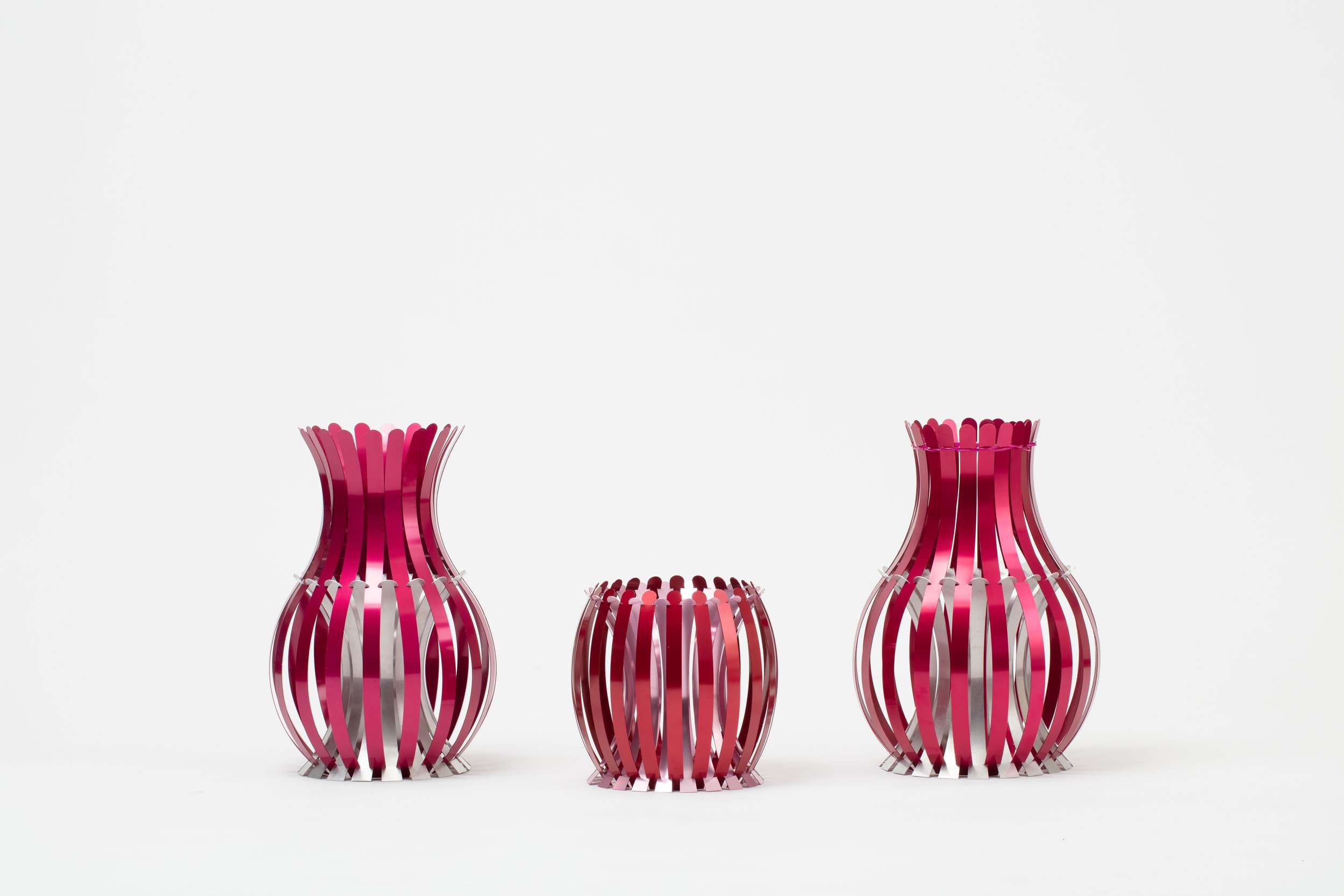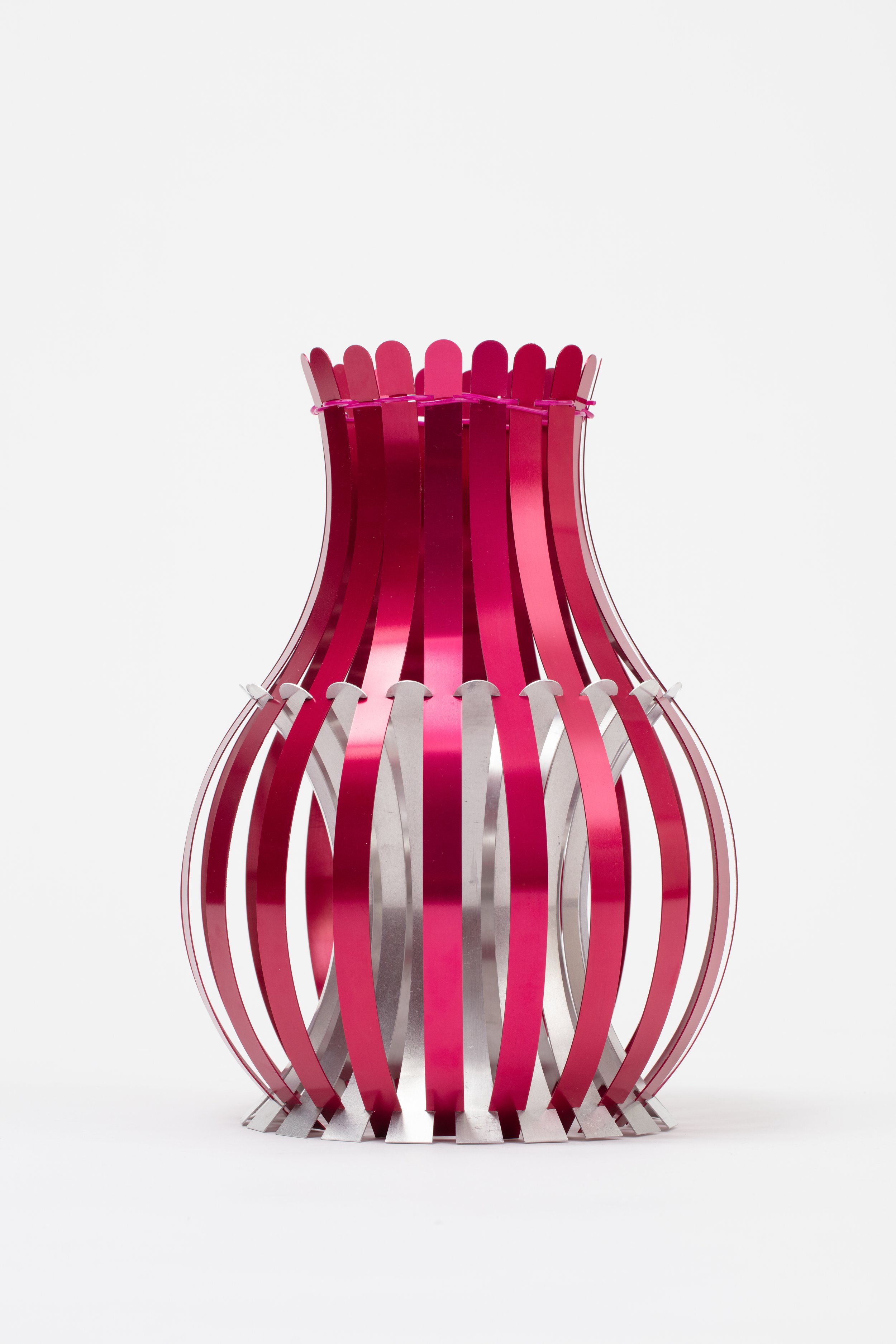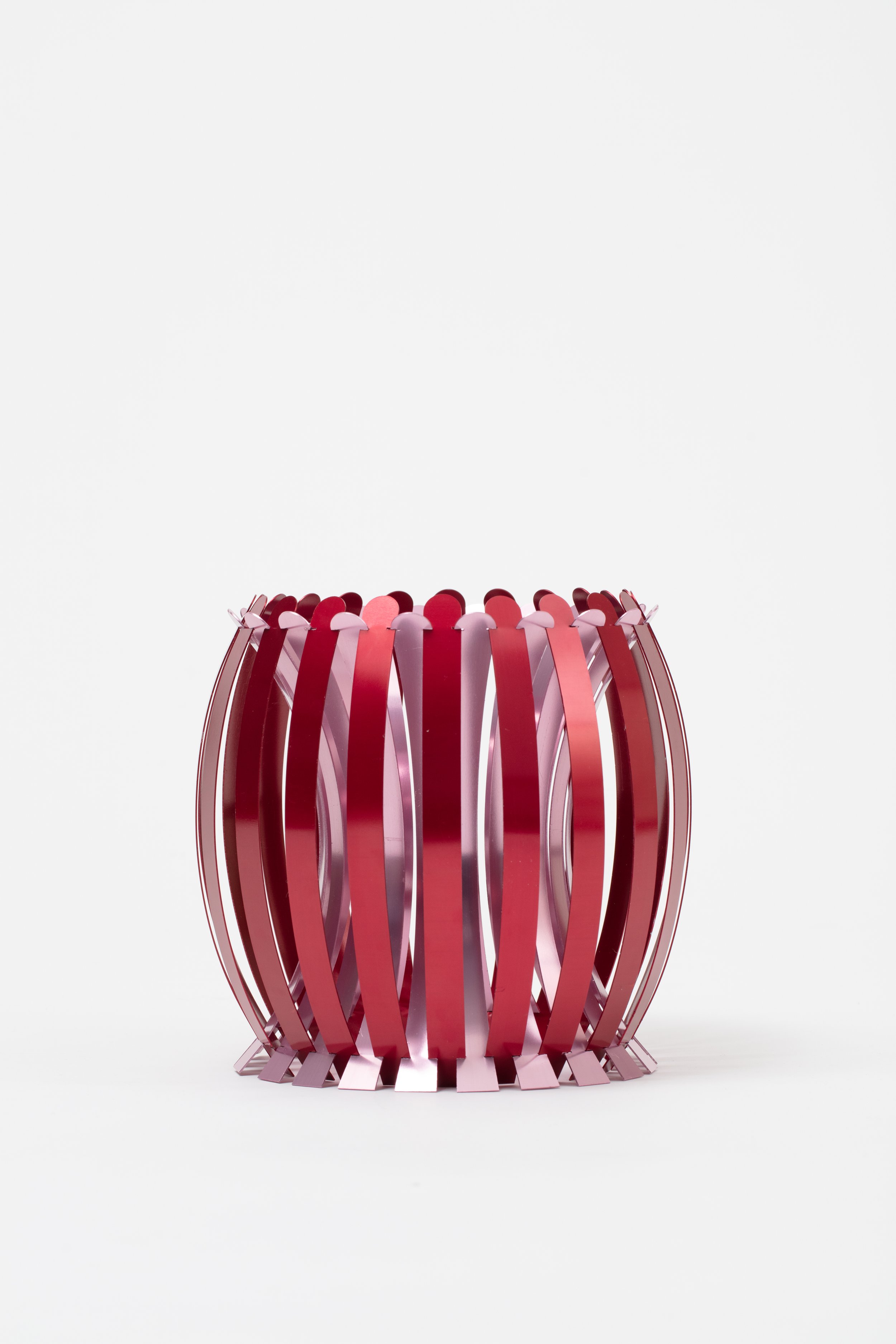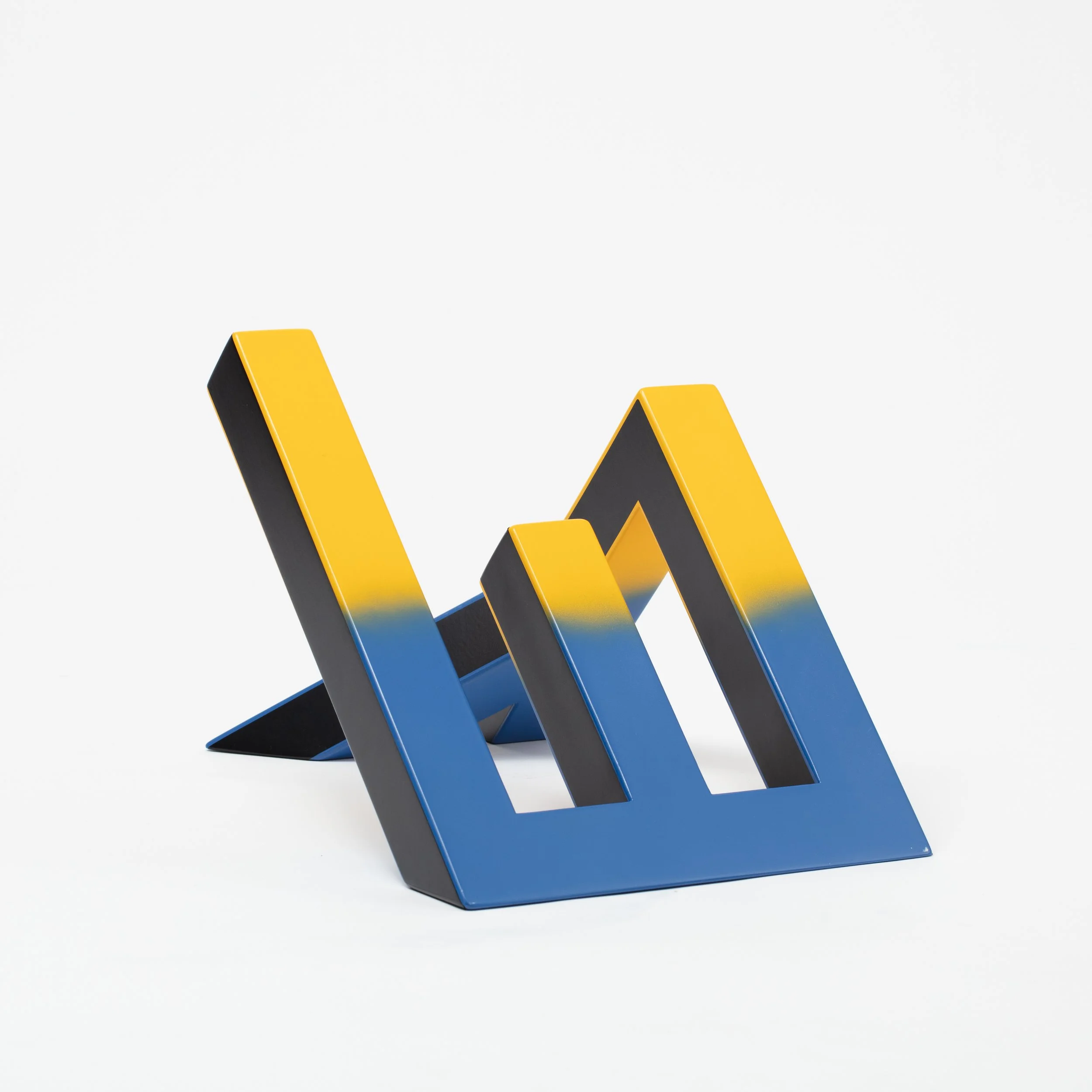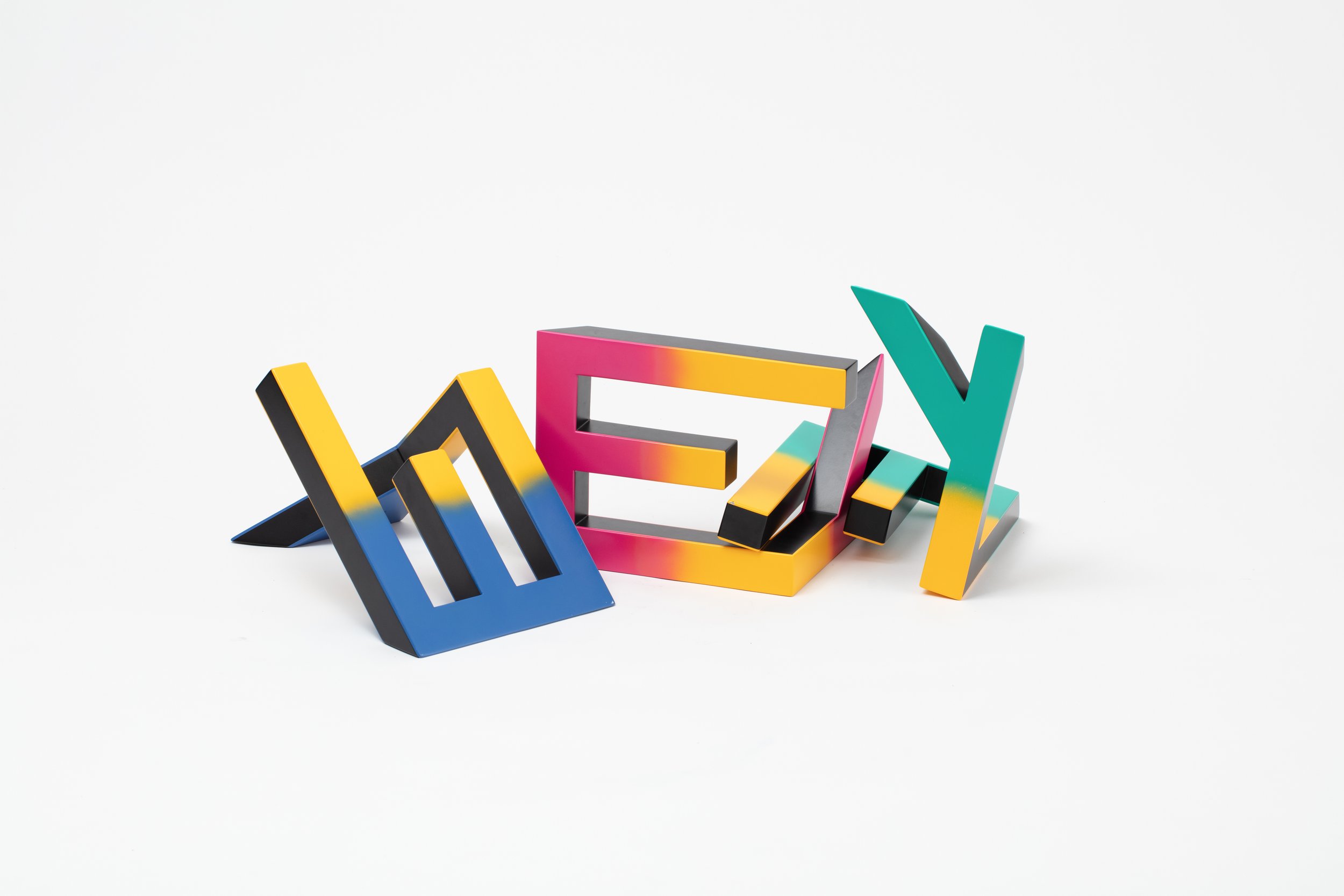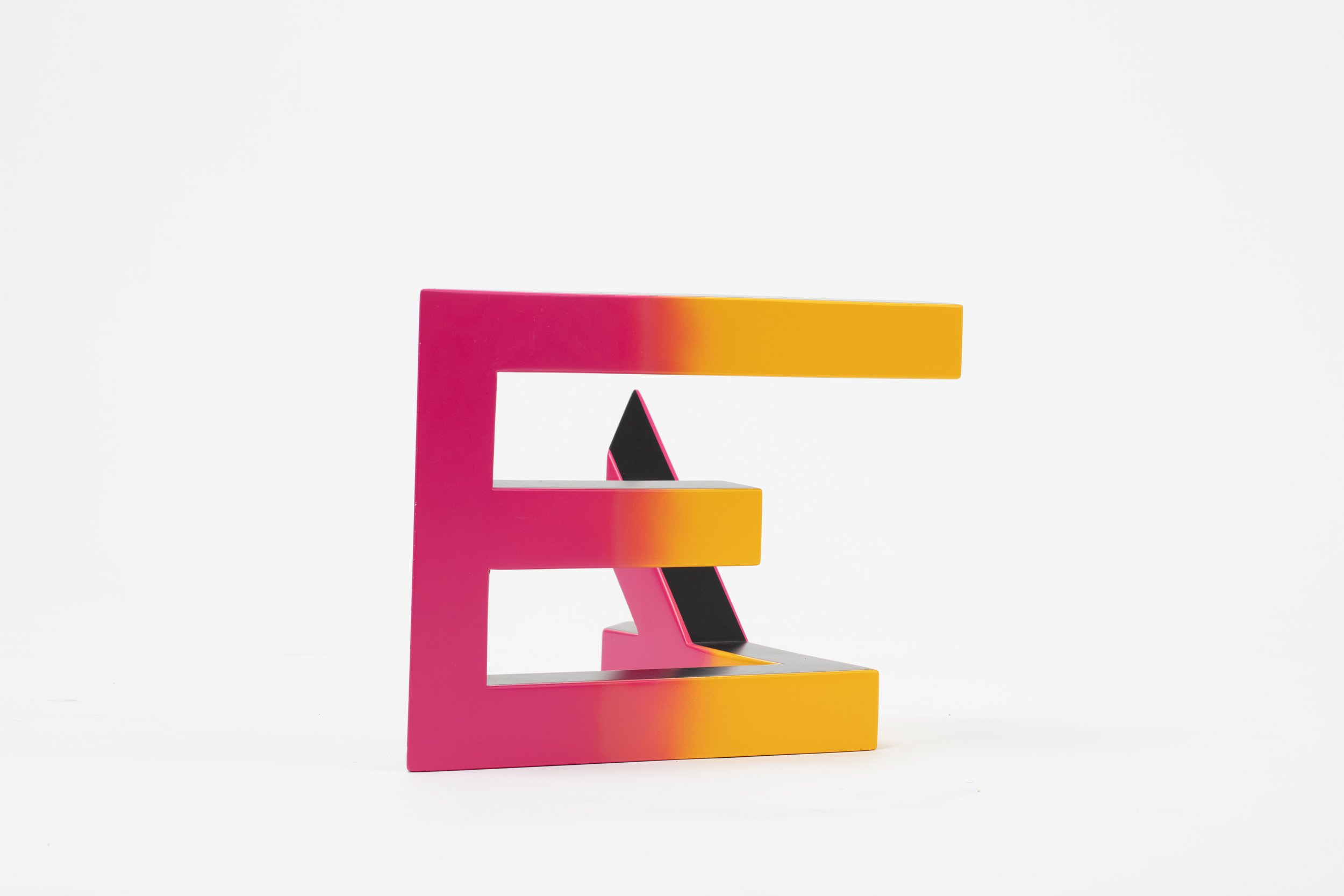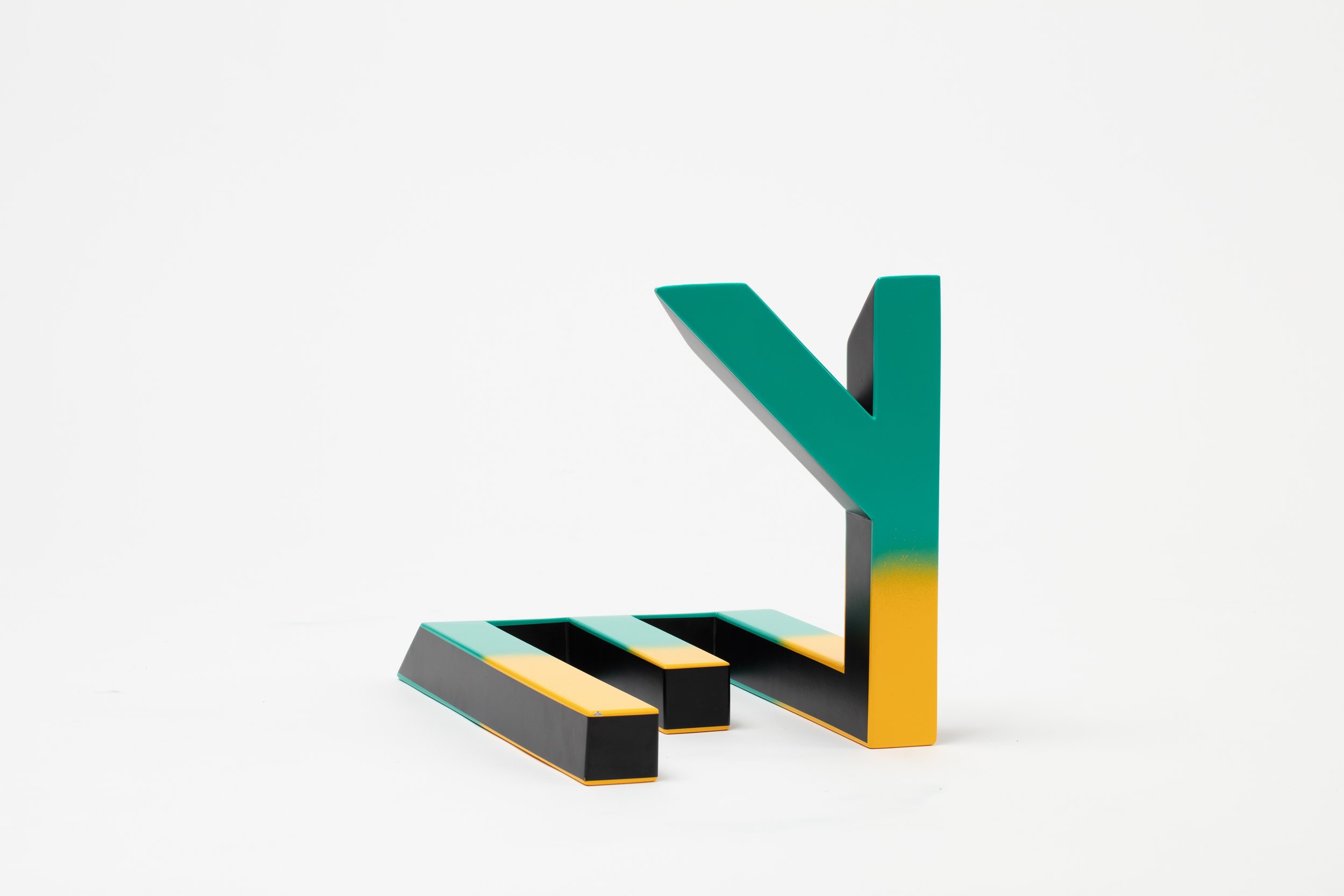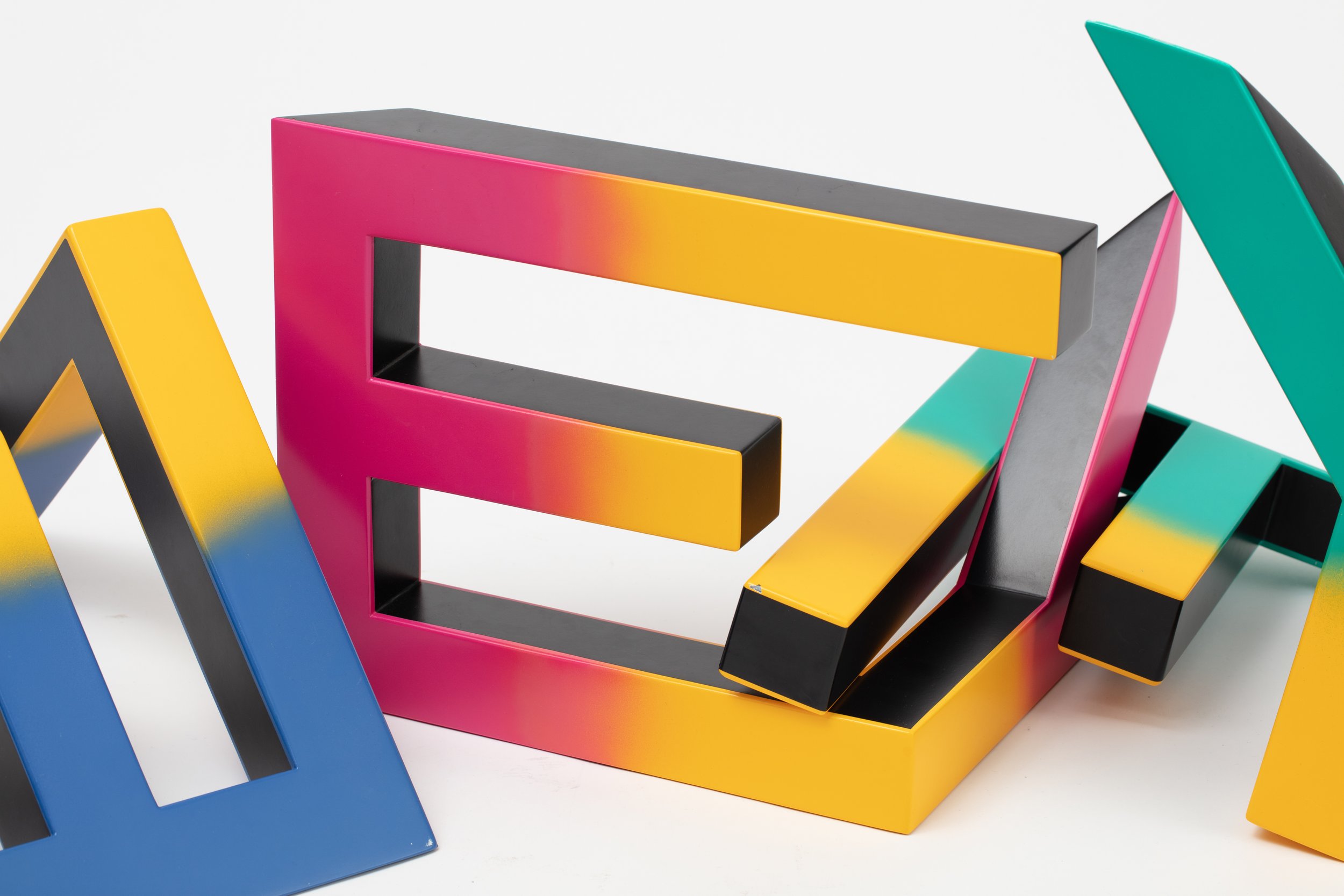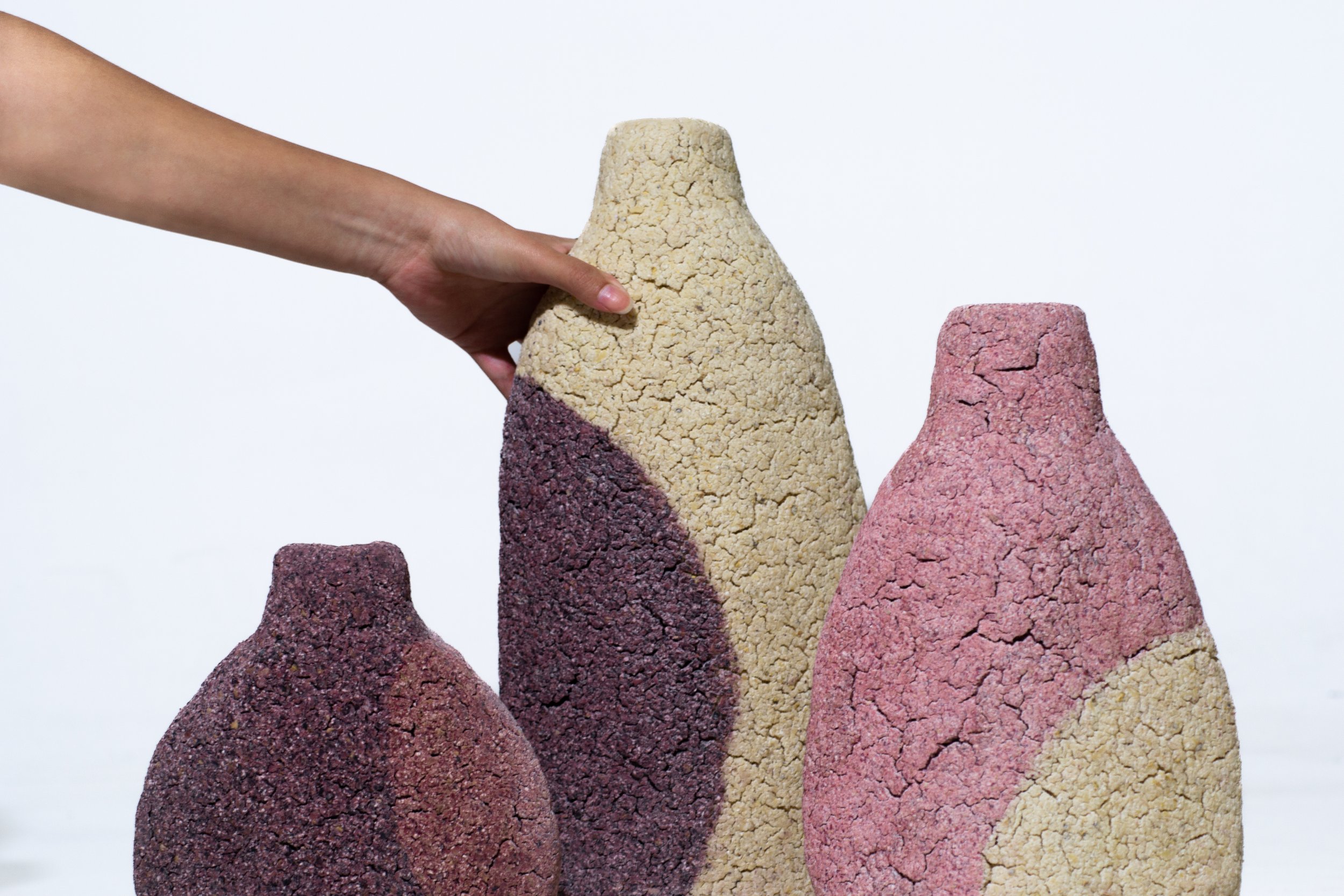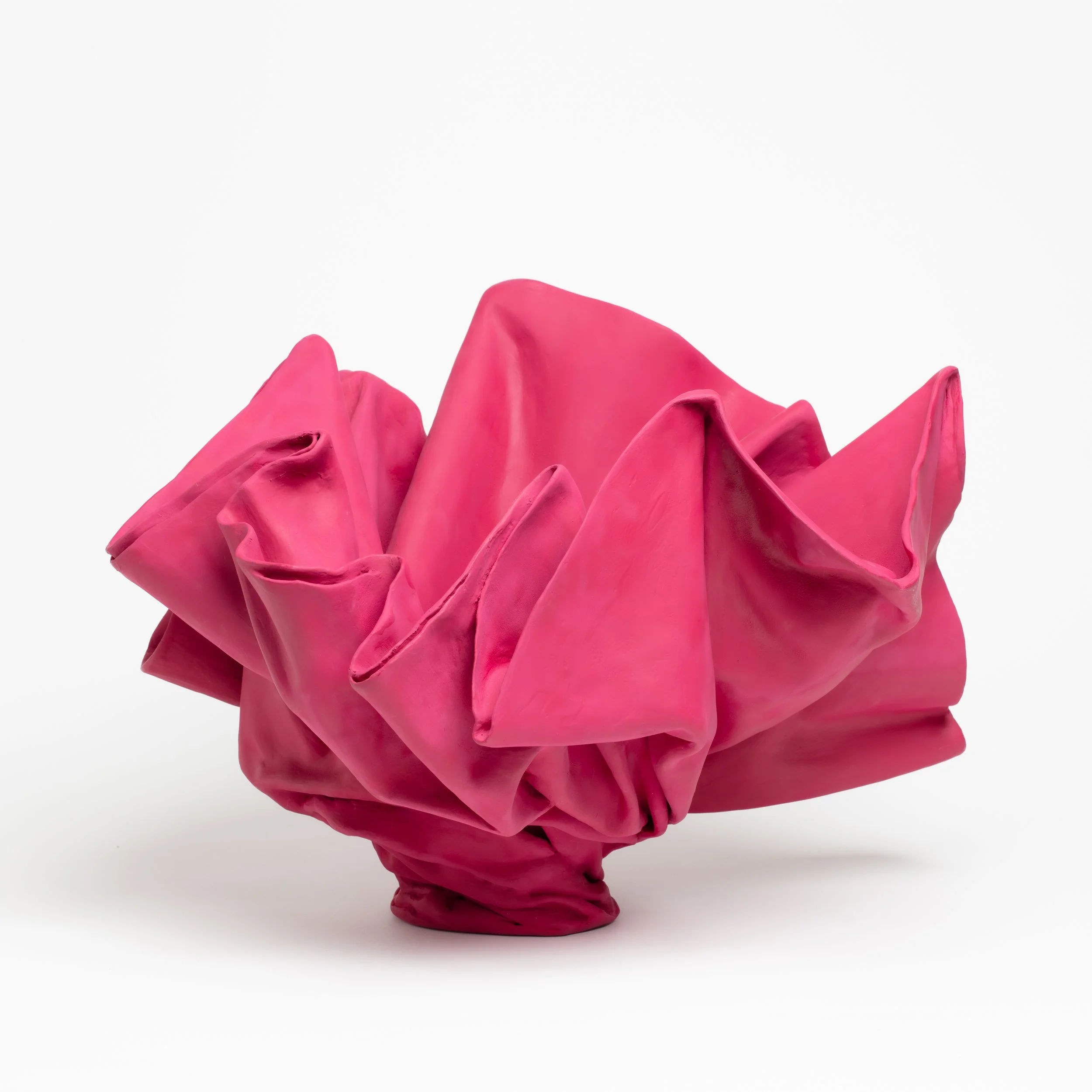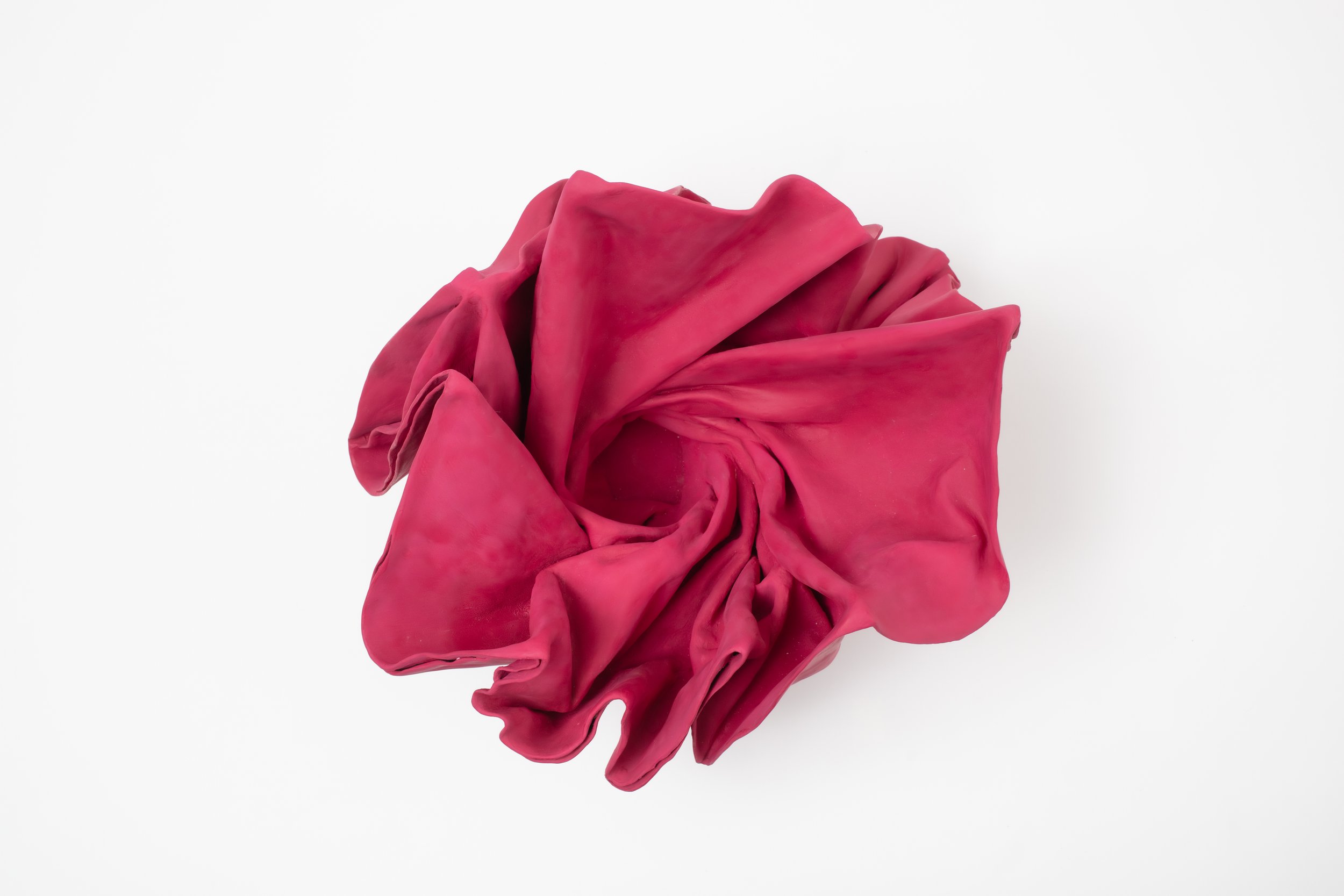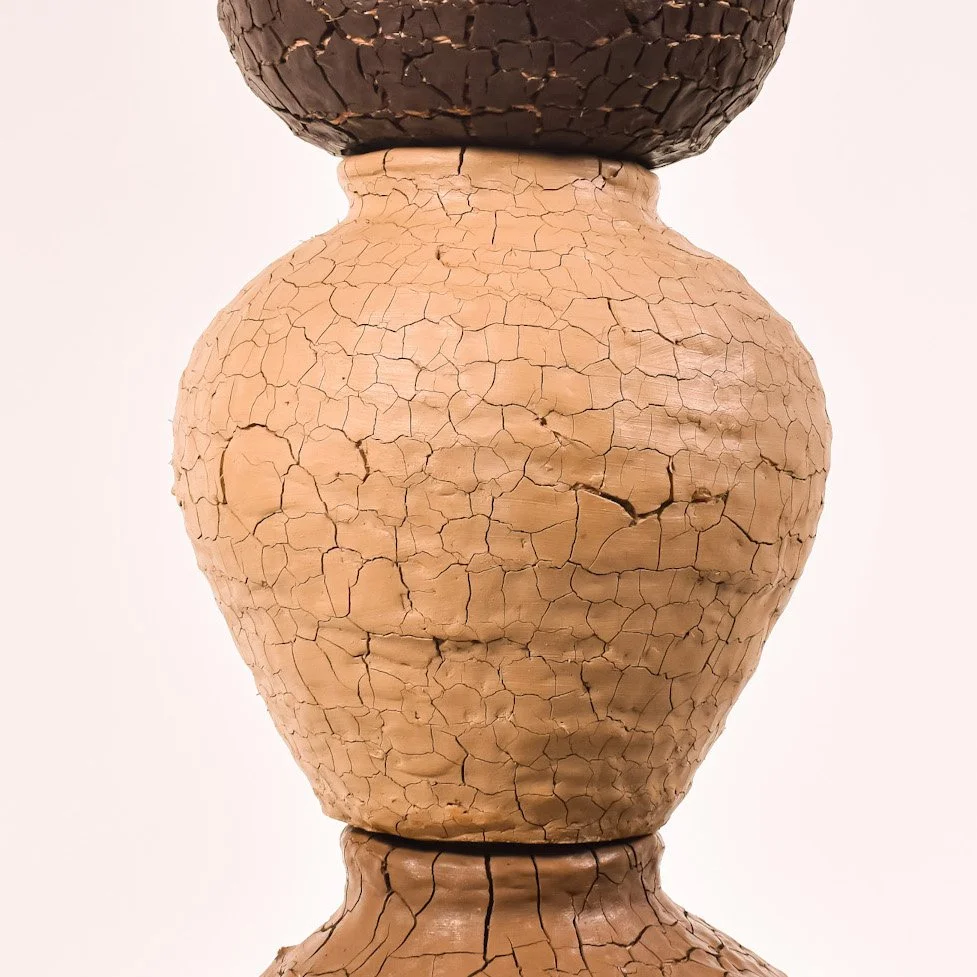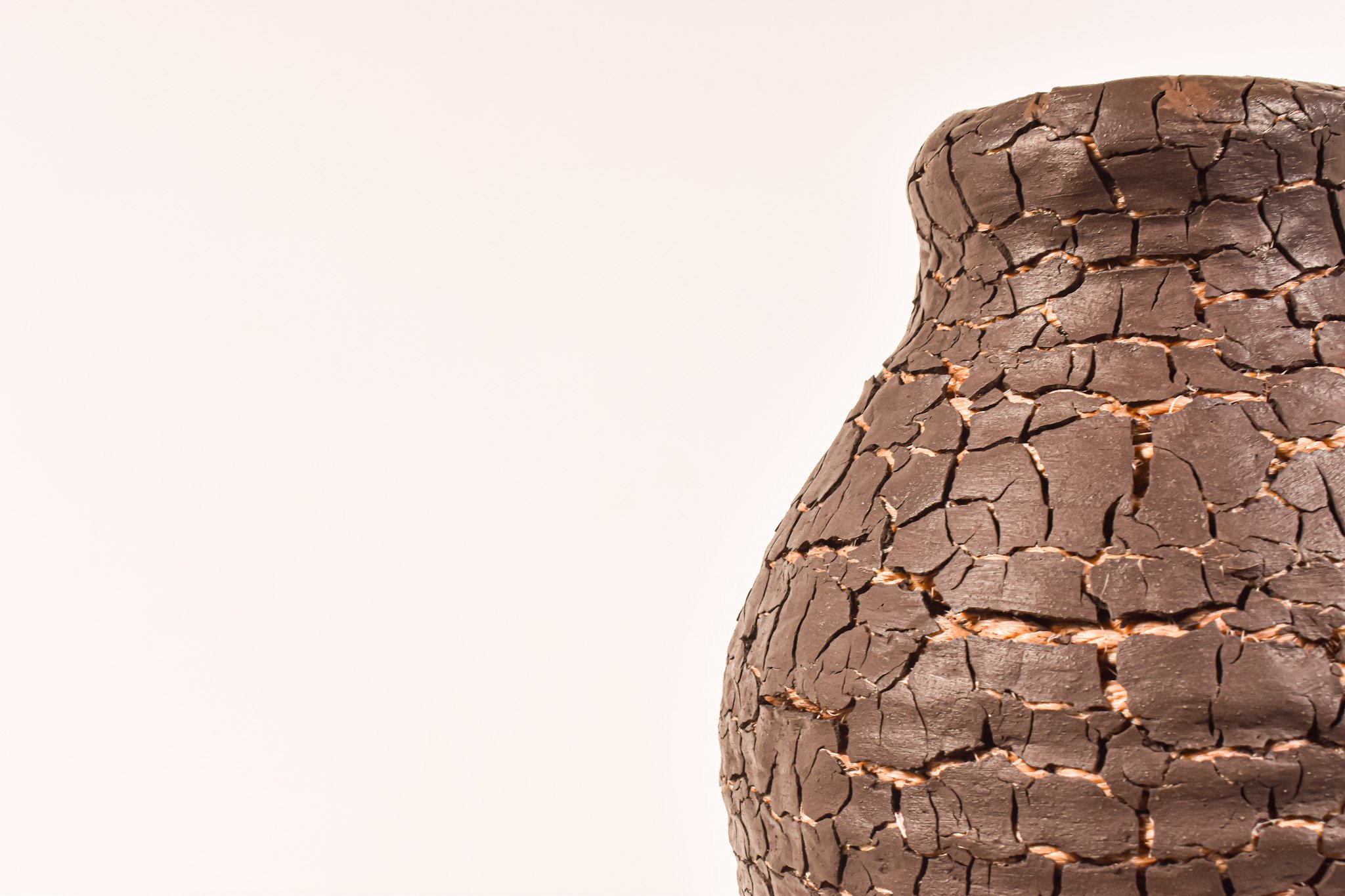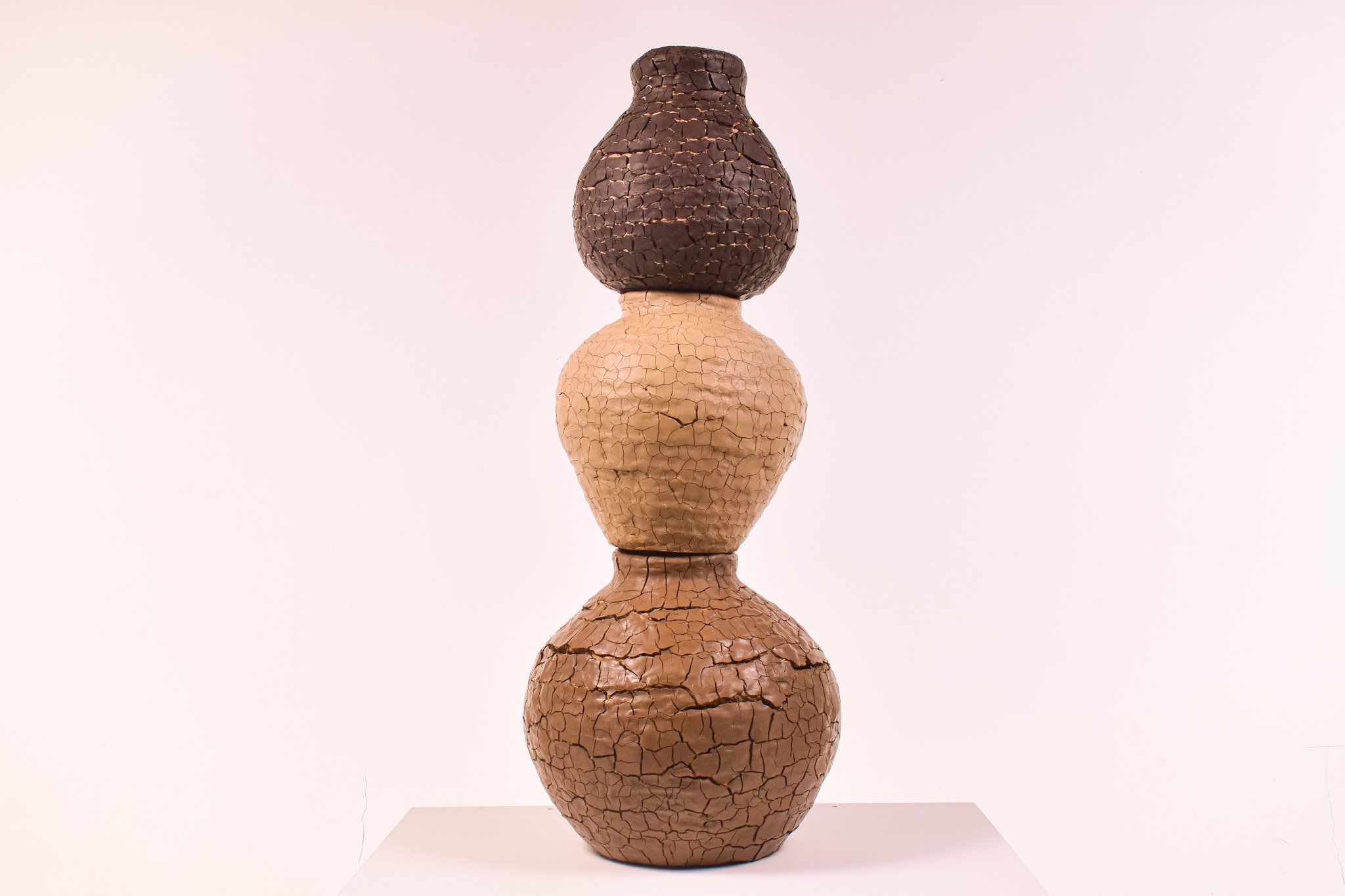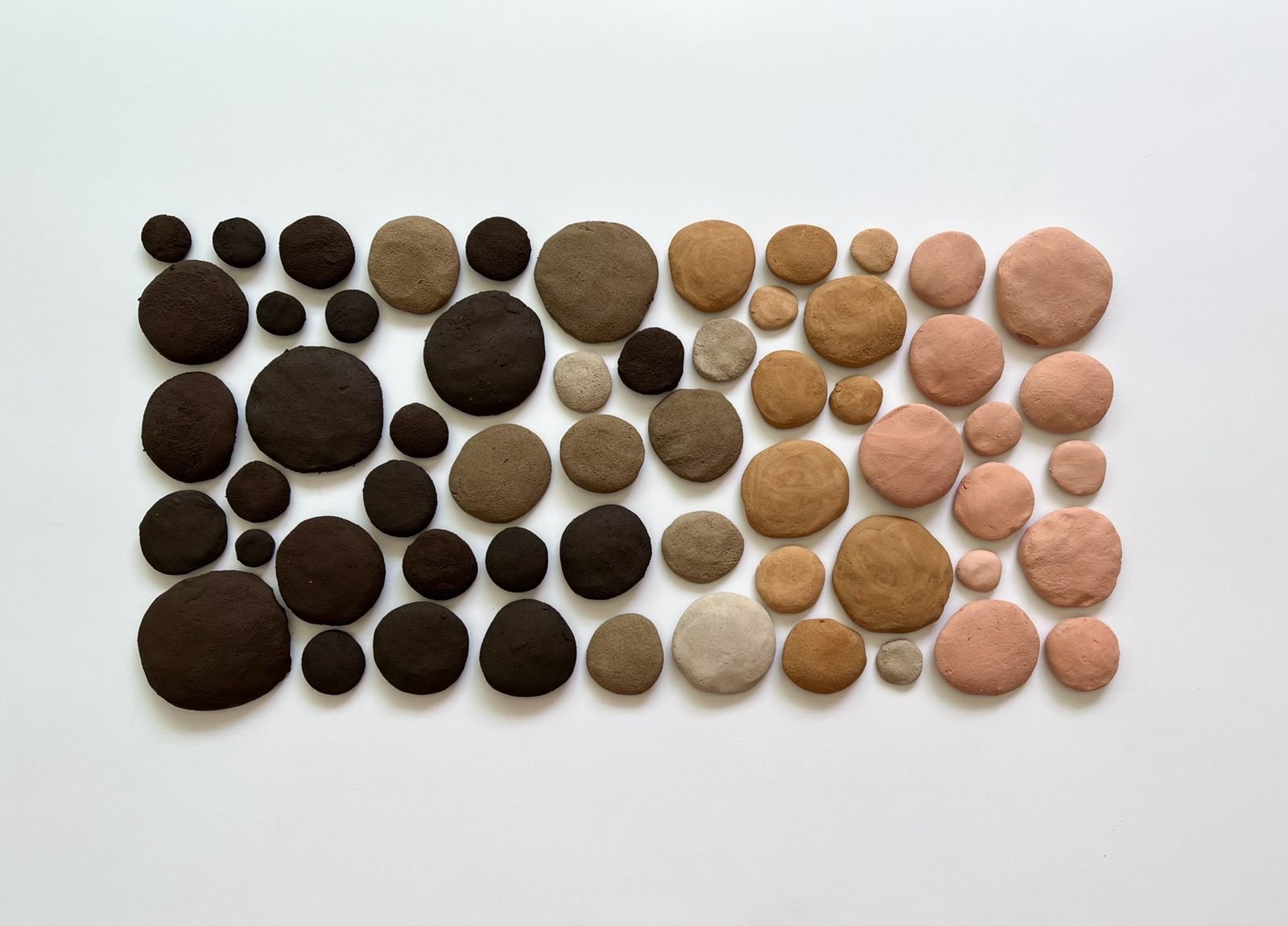FORM, FUNCTION, SENSE, AND WORTH (CCM)
PROFESSORS: MANUEL ÁLVAREZ, MONTSERRAT CASTAÑÓN, INÉS ÁLVAREZ, JUAN RAMOS, JOEL ESCALONA
CHANGARRO
Ixchel Roa Fábila, Diego García Herrera, Liliana Villegas Guevara, Paulina Gonzáles Ceballos
Containers that speak of the atmosphere generated by the tianguis through its colors and its characteristic pink sailcloth (lona). Which dresses the streets and creates a unique perception during the experience, distorting the perception of color of everything that is in it.
We take this element and encapsulate it in a container that communicates one of the most popular experiences in Mexico.
WEY
Jessica Escoto, Marina Salinas, Zar Rivera
WEY is a family of sculptures that show how we Mexicans communicate, also being a representation of our urban visual language. Using the bright colors and bold shapes of the “rótulos”, WEY is an artistic expression that reflects how we say things around here.
TLAOLLI
Joana Olguín, Daniela Zúñiga, Ana Cecilia López, Nathalia Camacho
Tlaolli is a collection of corn made vases inspired by Mexican cuisine that capture the importance of this ancient ingredient. They celebrate the diversity of the 48 different types of corn in Mexico and the artisanal process of cooking tortillas making use of the 3 principal types of corn: white, blue and red.
FOLCLORE
Majo Velasco, Gaby Márquez, Alan Tinajero, Camila Cartagena
Cloth dipped in resin and petrified in plaster.
Skirts fly while eyes dance. Folcore is a bright-colored piece that freezes the mystical moment a celebration comes to life through the gesture of looseness and free flow present in Mexican dance: folklore. It is through our culture and identity that we introduce ourselves to the world and connect with it... design is not only the means, it is also an end.
TONO
Naomi Palacios, Sebastián Cobo, María Fernanda García, Patricia Michel Espíndola
Tono is a family of vases inspired by the diversity of Mexican skin colors, body shapes, skin textures and traditional forms. The pieces are constructed with dyed rope and natural clay in different shades. The crackling of each vase alludes to the texture of the skin and is produced by the merge of the damp clay and the rope.



